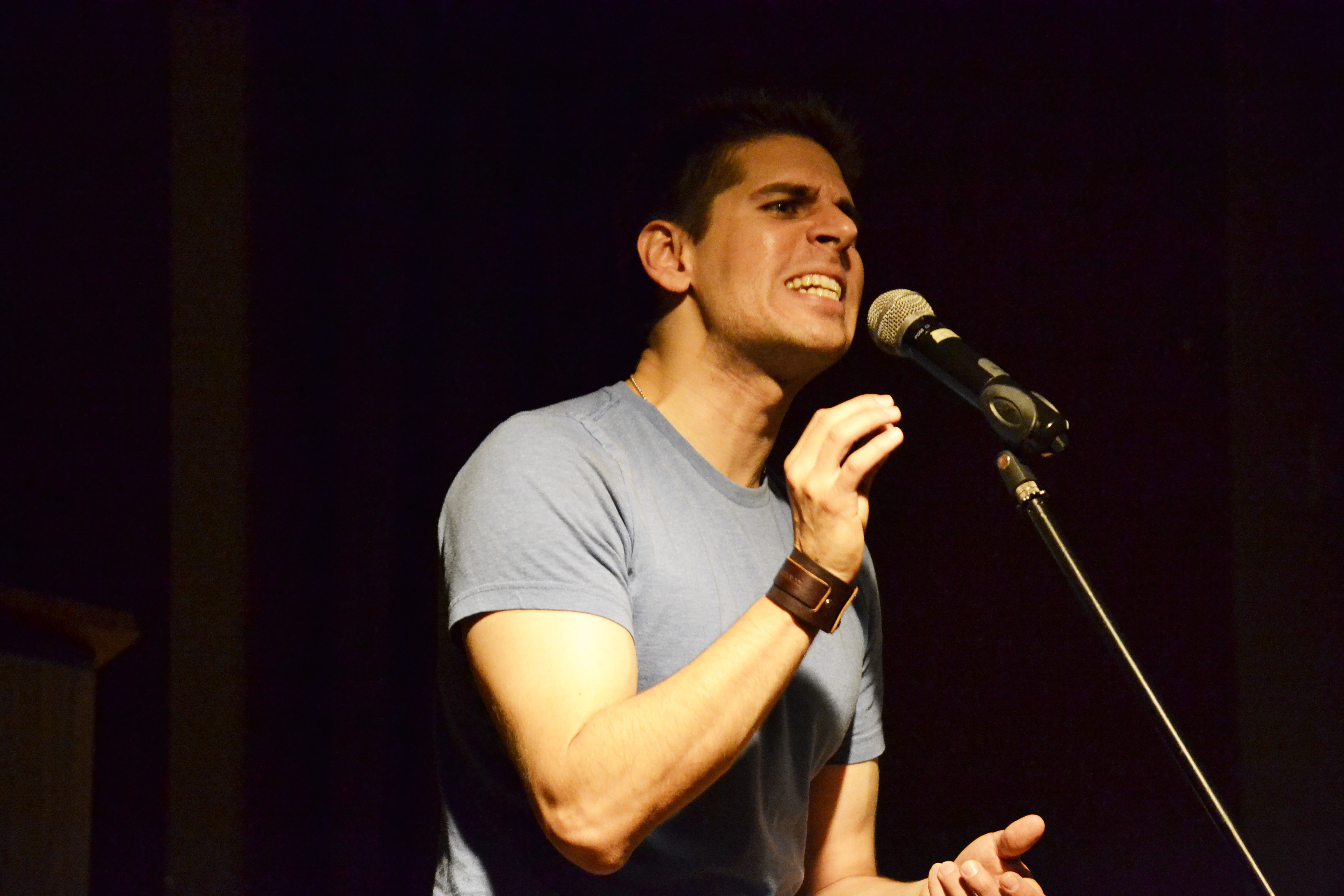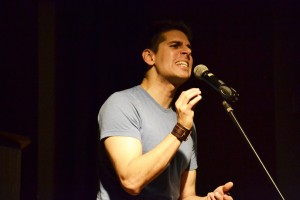A lyrical slam dunk


Take hip-hop, remove all the noise and just let the message speak. What you’re left with is slam poetry. On March 12, a large audience in the Turret was finding this out for themselves as Laurier Sociology Student Association’s (LSSA) hosted their third and largest slam poetry event entitled Poetic Justice. With Poetic Justice, LSSA was trying to expand how sociology students, and subsequently all arts students, interact with social issues outside of writing essays.
Featuring a combination of performances from both students from Laurier and more seasoned slam poets, the night was an equal mix of subject matter and approaches from many differing perspectives. Performances from Laurier students Fatima Attia, Tobi Ajibolade and Senmone Grant were strong and powerful. Fourth-year student Attia performed a piece called “Muslim Woman,” a powerful work about the struggles of a young Muslim woman who wants people to realize that she has the freedom to choose how she lives and that she is proud of it. The audience was completely engaged with Attia’s undeniable stage presence.
Emcees Chelsea Paul, LSSA president, and Donya Mosleh did not try to out-perform the poets; they provided simple introductions and let the artists’ work speak for itself instead of putting on a grand production. LSSA slam poetry night veteran Carlos Andrés Gómez returned for his seventh performance at Laurier, beating his six-time streak at Princeton. Gómez, born in New York City, has had the unique distinction of witnessing the differences of slam poetry culture in Canada and the United States. “I think I would explain the difference the same way I would explain Canadians versus Americans,” he said. “I find that there is more permission to enter softer spaces emotionally than in America. In New York, it’s very ‘rah-rah’, very angry, very big … but that’s the general consensus not the whole thing.”
But what exactly is slam poetry? Why do people dedicate their lives to it? And gather on to celebrate it? Kahsenniyo, one of the professional poets performing, defined slam poetry as “healing, it is freedom, it is feeling, it is de-colonization, those feelings of oppression and all of those other complex things, those never go away. You walk through life with all of these and I feel with spoken words it’s the only time [you] get that freedom from those feelings.”

